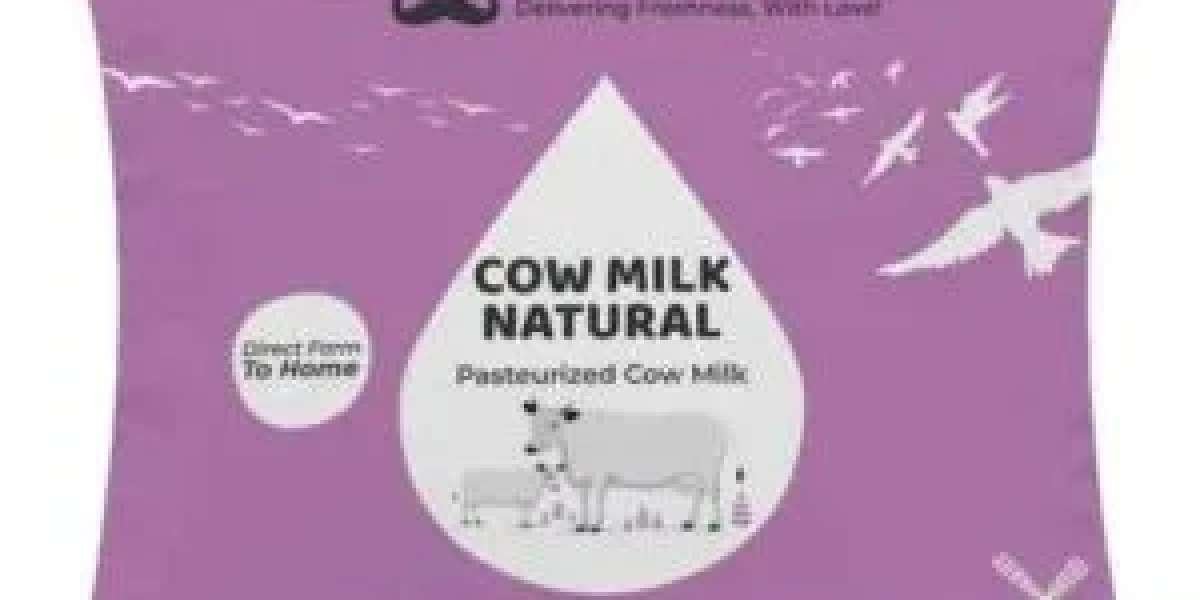Introduction
Cow milk has been a dietary staple for centuries, valued for its rich nutritional profile and versatility. Whether enjoyed as a beverage, used in cooking, or processed into cheese, yogurt, and butter, cow milk offers numerous benefits. This blog explores the reasons to buy cow milk, highlighting its nutritional advantages, potential health benefits, and the importance of making informed purchasing choices.
Nutritional Benefits of Cow Milk
1. Rich Source of Essential Nutrients
Cow milk is a powerhouse of essential nutrients that are vital for overall health. It is an excellent source of:
- Calcium: Essential for strong bones and teeth.
- Protein: High-quality protein that supports muscle growth and repair.
- Vitamin D: Helps in calcium absorption and bone health.
- B Vitamins: Including B2 (riboflavin) and B12, which are crucial for energy production and brain function.
- Potassium: Important for heart health and blood pressure regulation.
2. Bone Health
The combination of calcium, vitamin D, and phosphorus in cow milk makes it particularly beneficial for maintaining bone density and preventing osteoporosis, especially in children and the elderly.
3. Muscle Growth and Repair
The high-quality proteins found in cow milk, such as casein and whey, are excellent for muscle growth and recovery. This makes it a popular choice among athletes and fitness enthusiasts.
Health Benefits of Cow Milk
1. Weight Management
Studies suggest that the protein content in cow milk can help with weight management by promoting a feeling of fullness and reducing overall calorie intake.
2. Cardiovascular Health
Potassium in cow milk helps to maintain healthy blood pressure levels. Additionally, the presence of conjugated linoleic acid (CLA) in milk fat may contribute to a reduced risk of heart disease.
3. Gut Health
Fermented dairy products like yogurt, which are made from cow milk, contain probiotics that are beneficial for gut health. These probiotics can improve digestion and boost the immune system.
Ethical and Sustainable Purchasing Choices
1. Organic and Grass-Fed Options
When buying cow milk, opting for organic and grass-fed varieties can ensure higher nutritional quality and better animal welfare standards. Organic milk is free from synthetic hormones and antibiotics, and grass-fed cows typically produce milk with higher levels of omega-3 fatty acids.
2. Local and Small-Scale Farms
Supporting local and small-scale farms can contribute to more sustainable agricultural practices and reduce the carbon footprint associated with transporting milk over long distances. Additionally, it often ensures that animals are treated more humanely.
3. Fair Trade and Ethical Brands
Choosing milk from brands that adhere to fair trade principles ensures that farmers receive a fair price for their products, which can lead to better living conditions and more sustainable farming practices.
Conclusion
Cow milk remains a valuable addition to the diet for many people, offering a wealth of nutritional benefits and contributing to overall health. By making informed purchasing choices, consumers can support ethical and sustainable practices, ensuring that the milk they buy is not only good for their health but also for the environment and the animals involved. Whether enjoyed on its own or as part of a delicious recipe, cow milk continues to be a cherished and nutritious component of the diet.


![Dispersion Machine Market Size[2023], Share, Global Growth till 2030](https://upuge.com/upload/photos/2023/10/2qoHykgR1juEkEXStLPG_17_5a4646e8c61e23944ed094830b65e631_image.jpg)